
A Dutch EVS operator at Rio Carnival
A Dutch EVS operator at Carnival in Rio de Janeiro
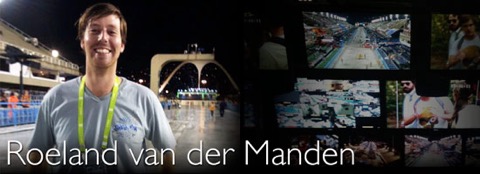
We all know Brazilian Carnival right?
We talked with Roeland van der Manden, one of the EVS Operators of last Carnival in Rio de Janeiro
BB: So Roeland, please tell us what is your function, and what does it include
Roeland: “EVS-operator. EVS is a system that makes live editing possible and makes replays at live events. I provide outside broadcast facilities with a premium service and it changes from a day to day basis. Some days I might be at a soccer game offering live replays to the director to then play out on live television to viewers at home, on another day I might be preparing for a live show taking all the pre-edited VT’s and feeding them into the EVS to then use as a tapeless method to play out to viewers at home”.
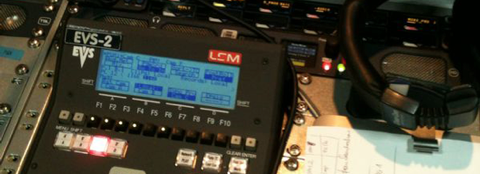
BB: Since when do you work as EVS operator
Roeland: “I have been working as an EVS-operator since 2008. Started in the Netherlands for Eyeworks and Endemol”.
BB: Which events did you already work on here in Brazil
Roeland: “I have worked for UFC coverages in Brazil since 2012, the Brazilian soccer championship, Libertadores Cup, world feed carnival 2014 in Rio de Janeiro and now I'm working for an American network at the IBC in Rio on the FIFA World Cup 2014”.
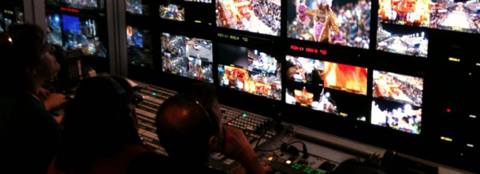
BB: What is the difference of the Brazilian events and events you worked on in the Netherlands
Roeland: “The difference between the events in Brazil and in the Netherlands is production and care. In the Netherlands, productions are bigger and made with more care. They do have all the equipment in Brazil to make events look really good but I think some of them maybe don't care enough to give it 100%. There's a lack of perfection at certain events. And planning is a big difference. For example, in Brazil I have never received a callsheet or any other useful info about the production. Even though many times things turn out to be fine "the Brazilian way”.
BB: How is communication with foreigners in general in your work
Roeland: “Communication has to be very good when working in EVS because a big part of the job is communication between director, producer and EVS. And most of the time communication has to be fast, because you work live”.
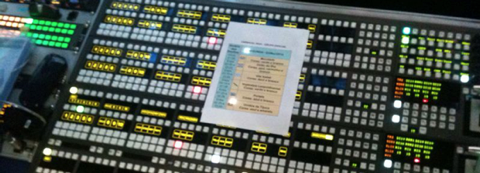
BB: What are the good and bad parts of Brazil as event host
Roeland: “Good part of the Brazilians is without a doubt the warmth character of the Brazilians. They are really open and enthusiast and there is always joy.
Any bad points would be the planning and the way they care about the production”.
BB: Do you notice a difference in foreign culture and your culture, in the way of working especially
Roeland: “A big difference in the two cultures is discipline and punctuality I think. Dutch people are very strict when at work. Brazilians are not. In Brazil it's very common that your colleague is a very good friend of you, in the Netherlands there's a clear difference between colleagues and friends. The majority of the cases at least”.
BB: How was it working on the last Carnival in Rio de Janeiro
Roeland: “Working at carnival was really spectacular. Like I mentioned before about the differences in size of the productions and care, you can compare the carnival for Globo with a great international event. I was very positively surprised”.
BB: Any specific technical difficulties during this event, and if so, these were due to what exactly
Roeland: “Work itself was normal at this event. We worked on the ultra slow replays which turned out to be very beautiful to show details about dancing. Very nice”.
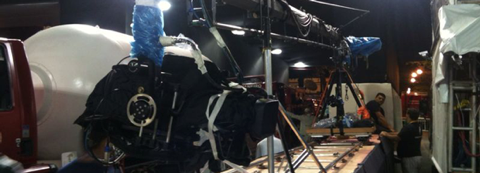
BB: Where there foreign broadcasters involved during the transmission
Roeland: “I believe not, the TV compound was from Globo only although the compound was quite big though”.
BB: What did you work on specifically during Carnival
Roeland: “We worked with the ultra slow replays of the dancers to show details and ordinary replays of the samba schools”.
BB: Which equipment did you use
Roeland: “EVS XT3. The newest model of EVS. And I-Movix”.
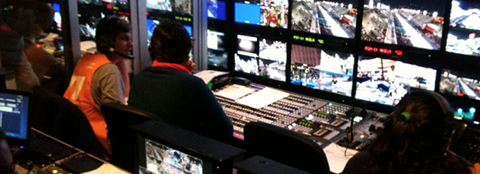
BB: Do you see a rise in the amount of (english speaking) Brazilian Broadcast Technicians needed during events in Brazil, and in which specific areas
Roeland: “Not really, this year you do but that has everything to do with the World Cup which is once. So not repeatedly I think”.
BB: Any good advice for the Brazilians in this area
Roeland: “It is always useful and of course important to be able to communicate in English”.
BB: How do you see the future for Brazilian broadcast Technicians the coming years with all upcoming foreign events
Roeland: “I think the Brazilian market is not going to change that much. The reason is because there are several big companies who provide their own services. There is not much of a freelance culture as there is in the US or Europe. People here prefer to work for a company instead of having their own business I think. So the market is not that competitive. There is Globo which owns almost all the channels here and than there's a long time nothing and than the rest.
But people should give their very best to show the international media out their that they're capable of producing big events”.
BB: What is the most important for you to be able to work with foreign companies
Roeland: “Foreign companies pay way better than the Brazilian ones. That for sure is an issue, further the production level is higher which makes it easier to work with them. Brazilian production level is not poor, but it's done by way less people so the conditions are harder and you can see that in the result”.
BB: Any other interesting things you have for us related to your work at last Carnival in Rio de Janeiro
Roeland: “Carnival was hard working but very satisfying and I really enjoyed it”.
Compilation of Carnival Rio de Janeiro 2014
So we hope this is, besides, fun to read, also a good help and insight information about broadcast events held in Brazil and what the future may hold.
Like us if you want on Facebook, and follow us on Twitter
mentioned:
Carnival Rio
EVS
I-Movix
FIFA worldcup 2014
Eyeworks
Endemol
TV Globo
UFC